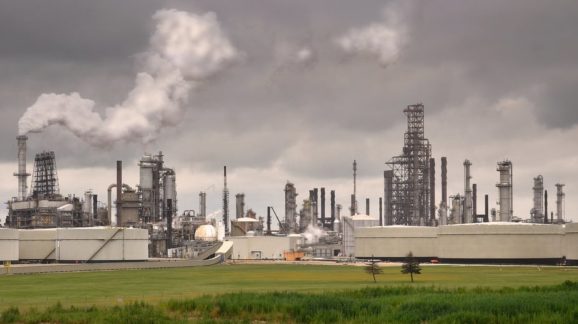What Exxon Knew: AEI Panel on Recent Climate Change Litigation

 The American Enterprise Institute (AEI) this week held a panel discussion titled “What did they know, and when did they know it?” on the growing swirl of state and municipal lawsuits alleging that ExxonMobil and other fossil fuel companies knowingly hid climate change risk from the public. The litigants—cities and counties in California and Colorado—hope to score billions in climate change “damages.”
The American Enterprise Institute (AEI) this week held a panel discussion titled “What did they know, and when did they know it?” on the growing swirl of state and municipal lawsuits alleging that ExxonMobil and other fossil fuel companies knowingly hid climate change risk from the public. The litigants—cities and counties in California and Colorado—hope to score billions in climate change “damages.”
A video of the AEI event, bios of the participants, and brief descriptions of the discussants’ main points are available here.
In the Q&A period, I asked the panel to comment on two rather obvious logical implications of the core premise of the climate litigation campaign. The eco-litigants claim that knowingly minimizing climate change risk for a profit is prosecutable fraud. Does it not then follow, I asked, that knowingly hyping climate change risk for a profit is prosecutable fraud? Similarly, isn’t knowingly minimizing climate policy risk—the potential adverse impacts of restricting access to affordable energy—also prosecutable fraud?
Panel moderator AEI economist Benjamin Zycher tossed the question to the two lawyers on the panel, the Niskanen Center’s David Bookbinder, who is representing two Colorado counties and the city of Boulder in a lawsuit against ExxonMobil and Suncor Corporation, and BakerHostetler attorney Andrew Grossman, who defends climate contrarians on free speech grounds and whose clients include the Competitive Enterprise Institute.
Bookbinder responded, “I’m not sure what the question is.” Both Zycher and I tried to clarify it for him, but he still professed not to understand, and invited Grossman to “take a shot at it.” A lawyer’s trick to avoid answering the question? Hard to believe my query was over Bookbinder’s head.
Grossman answered the question by reiterating his basic position that no one should be prosecuted for speech about climate change:
In my view, none of these things is prosecutable fraud, except for in circumstances that I’ve never heard. There’s this idea that there is, like, some guy at ExxonMobil that 30 years ago—he knew. Nobody else knew, but he knew. It’s ludicrous on the face of it. . . . None of these things as you have described it, as I understand it, can be fraud, should be fraud. I mean, this is how we debate and discuss things. And, again, at least for the moment, you get to do that.